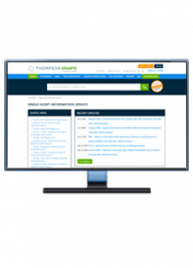Sneak Preview: OMB Urged To Share Lessons on COVID Flexibilities

(The following was excerpted from a recent Thompson Grants 360 article.) The Office of Management and Budget (OMB) plans to collect and share lessons that federal agencies have learned from using OMB-approved grant administrative flexibilities to relieve applicant and recipient burdens due to the COVID-19 pandemic, in response to a recent Government Accountability Office (GAO) recommendation.
In a report to congressional committees, GAO evaluated how flexibilities to grants administration that were offered last year were implemented by three selected federal agencies ― the departments of Education (ED), Health and Human Services (HHS) and Transportation (DOT).
In March 2020, OMB released the now-rescinded OMB Memorandum M-20-11, Administrative Relief for Recipients and Applicants Directly Impacted by the Novel Coronavirus, in an attempt to “relieve short-term administrative, financial management and audit requirements without compromising federal financial assistance accountability.” This guidance was narrow in scope and allowed federal awarding agencies to offer flexibilities for complying with certain uniform guidance requirements only “in instances where the agency has determined that the purpose of the federal awards is to support the continued research and services necessary to carry out the emergency response related to COVID-19.”
Soon thereafter, OMB released OMB Memorandum M-20-17, Administrative Relief for Recipients and Applicants of Federal Financial Assistance Directly Impacted by the Novel Coronavirus (COVID-19) Due to Loss of Operations, which stated that federal agencies may offer numerous flexibilities similar to those addressed in M-20-11 to an expanded range of recipients, and added further details. OMB further reminded agencies that they have the flexibility to issue exceptions on a case-by-case basis under the uniform guidance (§200.102).
Although agencies were allowed to implement these flexibilities as “blanket exceptions,” they were not implemented the same way across the government. For example, one flexibility allowed agencies, when grantees were requesting continuation of their grant projects, to accept a brief statement from the grantee verifying its ability to resume activities and accept further grant funding. ED determined that this flexibility could increase the risk that the agency would improperly extend awards for recipients that were not meeting expected performance, so it subsequently identified specific policies and procedures intended to mitigate the risks it identified. In addition, none of ED’s program offices used a flexibility allowing for the publication of notices of funding opportunities for fewer than 30 days.
In June 2020, M-20-17 expired, but OMB issued OMB Memorandum M-20-26, Extension of Administrative Relief for Recipients and Applicants of Federal Financial Assistance Directly Impacted by the Novel Coronavirus (COVID-19) due to Loss of Operations. M-20-26 maintained two flexibilities carried over under from M-20-17 that agencies have extended to recipients related to the allowability of salaries and other project activities through Sept. 30, 2020, and an extension of the single audit submission through Dec. 31, 2020, “to allow a responsible transition to normal operations.” (This issue is covered more comprehensively in ¶370 in Thompson Grants' Federal Grants Management Module and Handbook).
“OMB intended the COVID-19-related grant flexibilities to help grantees respond to, and address, organizational challenges stemming from the pandemic by reducing their administrative burden without compromising accountability,” GAO said. “In developing and implementing the flexibilities, OMB and the selected agencies used existing grants management processes to balance assisting grantees in responding to the pandemic while maintaining controls against waste, fraud and abuse of federal grant funds.”
HHS’s Executive Committee on Grants Administration Policy ― a departmentwide forum of senior officials designed to exchange information on, and make recommendations related to, grants management issues ― held meetings to monitor the use of the flexibilities across the department. At DOT, participants in the agency’s monthly Strategic Acquisition Council meetings, discussed implementation of the flexibilities.
(The full version of this story has now been made available to all for a limited time here.)
Join us for our following Thompson Grants event:
Virtual Federal Grants Forum: For State & Local Governments | May 11 - 12, 2021
Federal Grants Forum For Institutions of Higher Education | July 21 - 22, 2021



